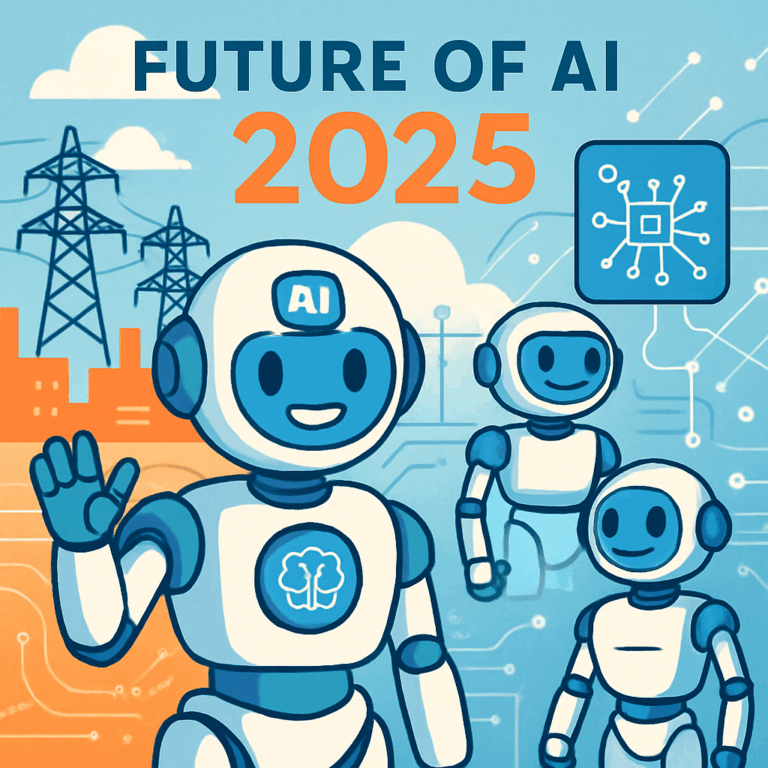
How AI Is Transforming Game Development
Introduction
Artificial Intelligence (AI) is revolutionizing the world of game development. From automating repetitive tasks to creating immersive, dynamic worlds, AI is empowering developers to build better games faster and more efficiently. This article explores the many ways AI is helping game developers, highlighting real-world examples and the latest tools shaping the industry.
Accelerating Game Development Cycles
Game development is a complex process that traditionally takes years, especially for AAA titles. AI is dramatically shortening these cycles by automating time-consuming tasks:
- Automated Testing: AI-powered bots can simulate player behavior, run regression tests, and identify bugs that might otherwise go unnoticed. Tools like modl:test allow for rapid, large-scale quality assurance, reducing the manual burden on QA teams and ensuring more thorough testing 1 2.
- Procedural Content Generation: AI can generate environments, levels, and even entire worlds on the fly. This not only saves time but also enables the creation of vast, dynamic game universes. For example, “No Man’s Sky” uses AI algorithms to generate over 18 quintillion unique planets, each with its own ecosystems and landscapes 3.
Enhancing Creativity and Design
AI is not just about automation—it’s a creativity booster for game developers:
- Art and Asset Creation: Tools like Promethean AI and Ludo.ai can generate concept art, props, lighting, and terrain details based on user-defined guidelines. This allows artists to focus on high-level creative decisions while AI handles repetitive design work42.
- Level and Game Design: AI algorithms can suggest improvements to level layouts, optimize player engagement, and even generate new gameplay mechanics. This leads to smarter, more responsive games that adapt to player choices and skill levels3.
Improving Player Experience
AI is at the heart of creating more engaging and personalized player experiences:
- Dynamic NPCs: AI-driven systems make non-playable characters (NPCs) more lifelike and adaptive. For instance, the Nemesis System in “Middle-earth: Shadow of Mordor” allows enemies to remember past encounters and evolve their behavior, resulting in unique storylines for each player 3.
- Personalized Gameplay: AI analyzes player behavior in real time, adjusting game difficulty, environment, and narrative to suit individual preferences. This keeps players engaged and encourages replayability 5 3.
Streamlining Programming and Code Quality
AI is also making life easier for game programmers:
- Code Generation and Assistance: AI-powered tools, similar to GitHub Copilot, help developers write code faster by suggesting imports, fixing boilerplate, and even generating unit tests. This speeds up development and reduces errors 6.
- Bug Prediction: AI tools like Ubisoft’s Commit Assistant analyze past coding errors to predict and prevent new bugs before code is committed, leading to more stable releases 3.
Reducing Costs and Increasing Efficiency
By automating repetitive tasks and optimizing workflows, AI helps studios save both time and money:
- Resource Allocation: Automated testing and asset generation free up human resources for more creative and strategic tasks, improving overall productivity 1 5 2.
- Faster Prototyping: Developers can quickly create prototypes using AI-generated assets and code, allowing for rapid iteration and innovation 6.
Real-World AI Tools in Game Development
| Tool | Main Use Case | Key Benefit |
|---|---|---|
| modl:test | Automated QA/testing | Faster, more thorough bug detection 1 2 |
| Promethean AI | Art and scene generation | Rapid creation of detailed environments 2 |
| Ludo.ai | Game design, asset creation | Quick concept generation, market analysis 4 |
| Commit Assistant | Code bug prediction | Prevents errors before they reach production 3 |
| NVIDIA DLSS | Graphics upscaling | High-quality visuals with better performance 3 |
AI and the Future of Game Development
AI is not just a trend—it’s becoming an essential part of the game development toolkit. As AI technology continues to advance, we can expect:
- Even more realistic and immersive game worlds.
- Smarter, more adaptive NPCs and gameplay systems.
- Shorter development cycles and lower production costs.
- Greater opportunities for indie developers to compete with large studios.
Conclusion
AI is fundamentally changing how games are made, played, and experienced. By automating tedious tasks, enhancing creativity, and personalizing gameplay, AI is helping game developers push the boundaries of what’s possible in interactive entertainment. As the technology evolves, its impact on the gaming industry will only grow, opening up new worlds of possibility for both creators and players alike 1 5 7 2 3 6.




